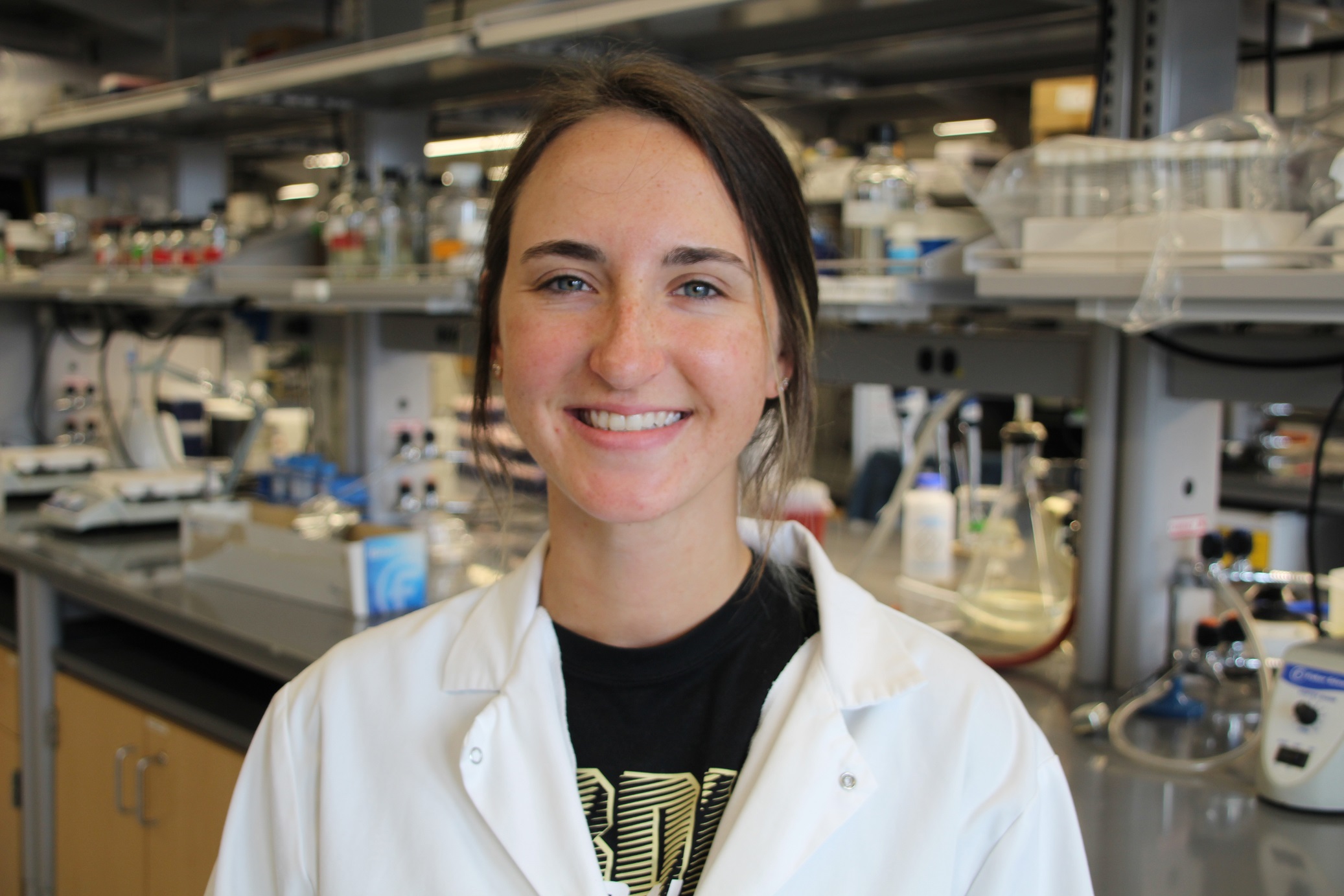Junior discovers she can study the ocean from Indiana
When Karlie Tischendorf stepped out of a cool research lab into the hot Florida summer sun, she couldn’t help but smile. After spending countless days researching the effects of red tide in the Gulf of Mexico to no avail, she finally made a breakthrough. Tischendorf’s internship experience in Sarasota gave her an emotional high and left her excited and hungry to learn more about the ways chemicals can affect marine organisms and their environments.
“I’m interested in ecotoxicology,” explained Tischendorf, a junior biochemistry major from Santa Claus, Indiana. “It has to do with chemicals we put into the environment and how it impacts aquatic organisms on a biochemical level.”
At first glance, a landlocked university in the Midwest may not seem like the ideal location to pursue a career in marine science. How could a student possibly learn how marine organisms interact with their environment while attending school hundreds of miles away from the ocean?
 Karlie Tischendorf is interested in studying the effects of chemicals on the marine environment. The junior biochemistry major from Santa Claus, Indiana, admits that it may seem odd to pursue a career in marine science in the Midwest, but credits her experience in the labs for building a solid foundation. Photo by Brooke Lueking.
Karlie Tischendorf is interested in studying the effects of chemicals on the marine environment. The junior biochemistry major from Santa Claus, Indiana, admits that it may seem odd to pursue a career in marine science in the Midwest, but credits her experience in the labs for building a solid foundation. Photo by Brooke Lueking. “At first, that was a difficult struggle for me,” Tischendorf reflected. “But I knew it was what I wanted to do, and I took that leap of faith.”
While Purdue is far from the ocean, Tischendorf said her studies presented her the opportunity to focus on the scientific details behind marine research and helped her build strong laboratory skills. She began to appreciate and better understand the science behind how marine organisms interact with their environments and chemicals. She said she was determined to set herself apart by building strong laboratory skills and learning as much as she could in the classroom.
“Purdue has set a really good scholastic foundation as far as research goes,” she said. “It has brought out a tenacious aspect in me, and it’s driven me to know this is what I really want to do.”
Approaching marine sciences from a biochemistry perspective, Tischendorf explained, allows her to learn more at the molecular level. That, in turn, prepared her for hands-on research opportunities at Purdue and her experience as an ecotoxicology intern in Florida.
Working in research labs has been something Tischendorf has been doing since she started at Purdue. She is fascinated by the hands-on learning aspect of research and credits her freshman experience in a research lab for helping develop that fascination.
“I knew I wanted to get involved in a research lab as soon as I could,” she explained. “That’s one of the best things I’ve done in my college career.”
When Tischendorf was in Florida researching red tide, she said she became increasingly thankful for her firm foundation in biochemistry and the experience she had gained in the laboratory while still on campus.
“The lab practices at Purdue helped prepare me to recognize where issues could come up,” she said.
Find out more
Explore Purdue Agriculture Majors
Brooke Lueking is a student writer majoring in agricultural communication in Agricultural Sciences Education and Communication






